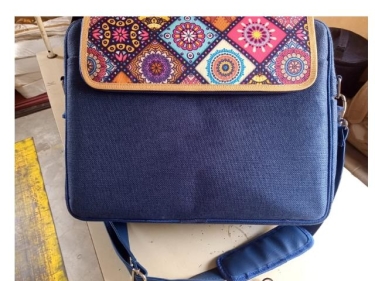Search Results for "gambia" in "Gambia" on Export Portal
Active Filters
-
Keywords:
-
Country:
- Clear all
New Search
Couldn't find the product you want?
Fill out this form to request the product.
Exports

The country has a liberal, market-based economy, the most important economic sectors being agriculture, re-export, services and tourism. Agriculture represents about 30% of the GDP and employs about 70% of the population. Peanuts are the most important agricultural crop, accounting for 6.9% of the country's GDP. Other crops include rice, cassava, pearl millet, maize, sorghum and palm kernels.
Industry represents around 8% of the Gambia's GDP. Manufacturing activities are agriculture-based and include peanut processing, bakeries and breweries. Other manufactured goods include clothes, soft drinks and soap.
Tourism is also an important part of the country's economy, as Gambia has good beaches, which are popular during the Northern Hemisphere winter. The Gambia does not have important mineral/natural resources.
Gambia is the world's 177th largest exporter. Its main exports are peanuts and peanut products, coconuts, cashews, cotton lint, fish, palm kernels and scrap iron. The Gambia's major export partners are China, Japan, Mali, Hong Kong, India, France, Spain, Belgium and Luxembourg.
Customs requirements of Gambia
Gambia Customs Contacts
Website: http://www.accessgambia.com/information/customs-excise.html
Email: gra@qanet.gm
Address: 78/79 Liberation Avenue, Banjul, The Gambia, West Africa
Tel: +220 4223131
Gambia is a country situated in West Africa, surrounded by Senegal with a short strip of its coastline bordered by the Atlantic Ocean. It is the smallest country on mainland Africa. Gambia is a member of the African, Caribbean, and Pacific Group of States, Economic Community of West African States (ECOWAS), World Customs Organization, World Trade Organization and other international oragnizations.
Tariffs
The Gambia applies the ECOWAS Common Customs Tariff which comprises 4 rates equal with 0%, 5%, 10%, and 20%. Taxes on basic commodities such as rice, sugar, cooking oil are either zero rated or charged minimum duty.
The ECOWAS members plan to introduce a fifth rate of 35%, based on harmonization of national lists submitted by members, and of national exceptions to the ECOWAS common tariff.
With the adoption of this plan, dutiable goods will be classed in "consumer goods" and "economic development goods", and the tariffs will vary according to the product type as follows:
Category 0: basic social goods - 0%
Category 1: basic needs, raw material, capital equipment, and specific inputs - 5%
Category 2: inputs and intermediate products - 10%
Category 3: final consumer goods and other products - 20%
Category 4: specific goods for economic development – 35%
Product certification, packaging and labeling
Licences
Licences are required for the importation of: firearms and ammunition, live birds, and key-making machines. Import controls apply to products containing CFCs, which must be screened by the National Environmental Agency.
Imported food products of plant or animal origin must be presented to the Department of State for Health (DOSH) for inspection.
The Department of State for Agriculture carries out sample tests of to verify that the imports are free from infestation, before issuing a phytosanitary certificate certificate of clearance for imports.
The Secretary of State for Agriculture may require that the importation of certain plants or plant material has a phytosanitary certificate, issued by the exporting country based on the model of the IPPC.
Labelling and packing
Food imported in bags and packages must be clearly labelled, indicating:
- the name and nature of the product
- the list of ingredients
- net weight
- the name and address of the manufacturer
- the country of origin
- the date of production and expiry
The Hazardous Chemicals and Pesticides Control and Management Act requires that imported pesticides and chemicals have labels providing product information, procedures to be followed for the correct handling and disposal of the product, and information on the steps to be taken in case of inhalation or ingestion.
Documents for import
- Original shipping documents (bill of lading/air waybill)
- Package list
- Insurance documents
- Commercial invoices
- Declaration of freight charges
- Import licenses
- Certificates and permits
Sources:
http://www.accessgambia.com/information/customs-excise.html
http://www.gambiatradeinfo.org/market-access/barriers/tariffs-and-quotas





























